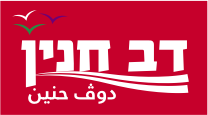One of Khenin's main focuses is the rights of workers, saying in April 2014 that, "the problem of low wages is the most critical of all. Not the price of cottage cheese and not even apartment prices". In 2014, he initiated legislation to increase the minimum wage from 23 NIS to 30 NIS. This legislation received widespread, cross-party support, with backing from 61 of the 120 members of the 19th Knesset. In December 2014, the minimum wage for workers was raised to 27 NIS through a contract agreement between the Histadrut labor union and the Manufacturers Association of Israel. Dov welcomed the progress, but vowed to keep pushing towards his original goal of a 30 NIS minimum wage.
Khenin also works to keep the influence of money out of politics, supporting the campaign against the privatization of Israel's natural gas resources. In 2015, Prime Minister Netanyahu's cabinet voted to allow the development of natural gas harvesting off the coast of the Mediterranean sea. Khenin and other critics noted how this would give too much power to the American Nobel Energy group, as well as pose a conflict of interests to Netanyahu. In an effort to make the voting process more fair, Khenin along with MK Zehava Galon asked Attorney General Yehuda Weinstein to exclude the Prime Minister from voting on the issue. Dov also participated in the large protests in response to the deal. At a protest in Haifa, Khenin said, "this struggle is not only an economic struggle or a social struggle. It is also a struggle for democracy. There is no democracy where capital rules.”
In addition to this, Khenin is also a supporter of broader ecological legislation. In 2012, Dov proposed setting up an "environmental court" for the country. He envisioned a court that would watch over the country's natural resources, as well as safeguard wildlife and ecosystems. Recognizing the municipality's lack of authority over traffic regulations, Khenin acted in 2008 to pass legislation that would have communities create their own policies. This legislation, aimed at allowing a more direct and local solution to automotive pollution problems, allows for effective public transportation changes to be implemented on the smaller scale. Khenin also battled against industrial pollution in Haifa. In 2014, Khenin headed a subcommittee calling for stricter environmental standards to be imposed on Haifa's oil refineries located along its port. The panel showed a possible link between pollution from the refineries to increased risk of cancer among residents in the area.
In regards to past conflicts with Gaza, Khenin is clear that the fault is on Israel. During Operation Protective Edge, Khenin showed vehement opposition to the war, placing complete blame on Prime Minister Netanyahu. During the summer of 2014 Khenin spoke out against the operation both in the political and social sphere. At a protest in Tel Aviv, Khenin asked a crowd of 7,000, "we must answer truthfully: Has a drop of all this bloodshed really helped bring us to a better place?”

